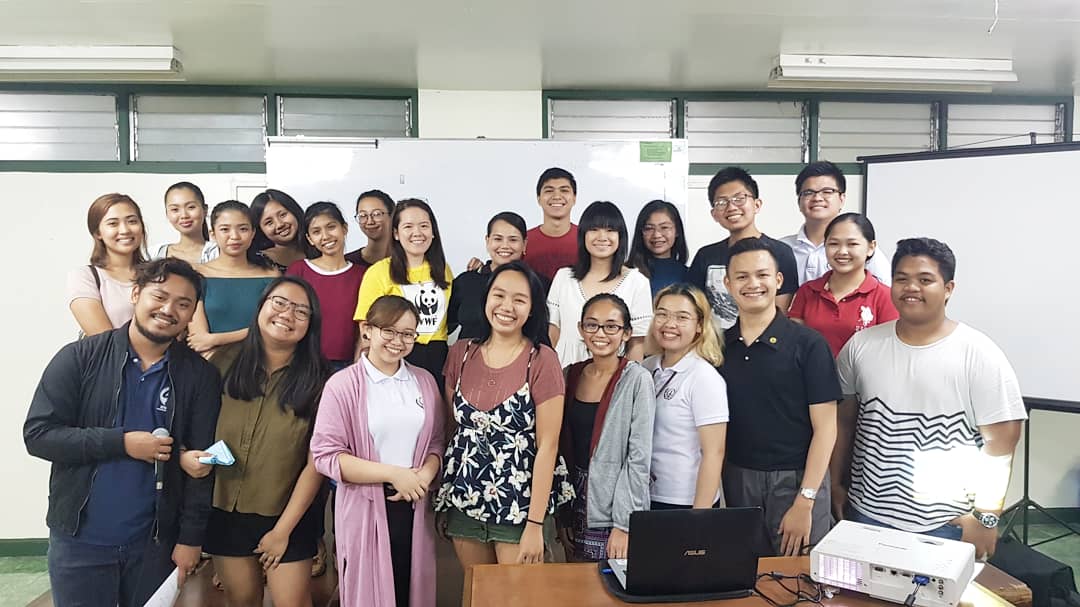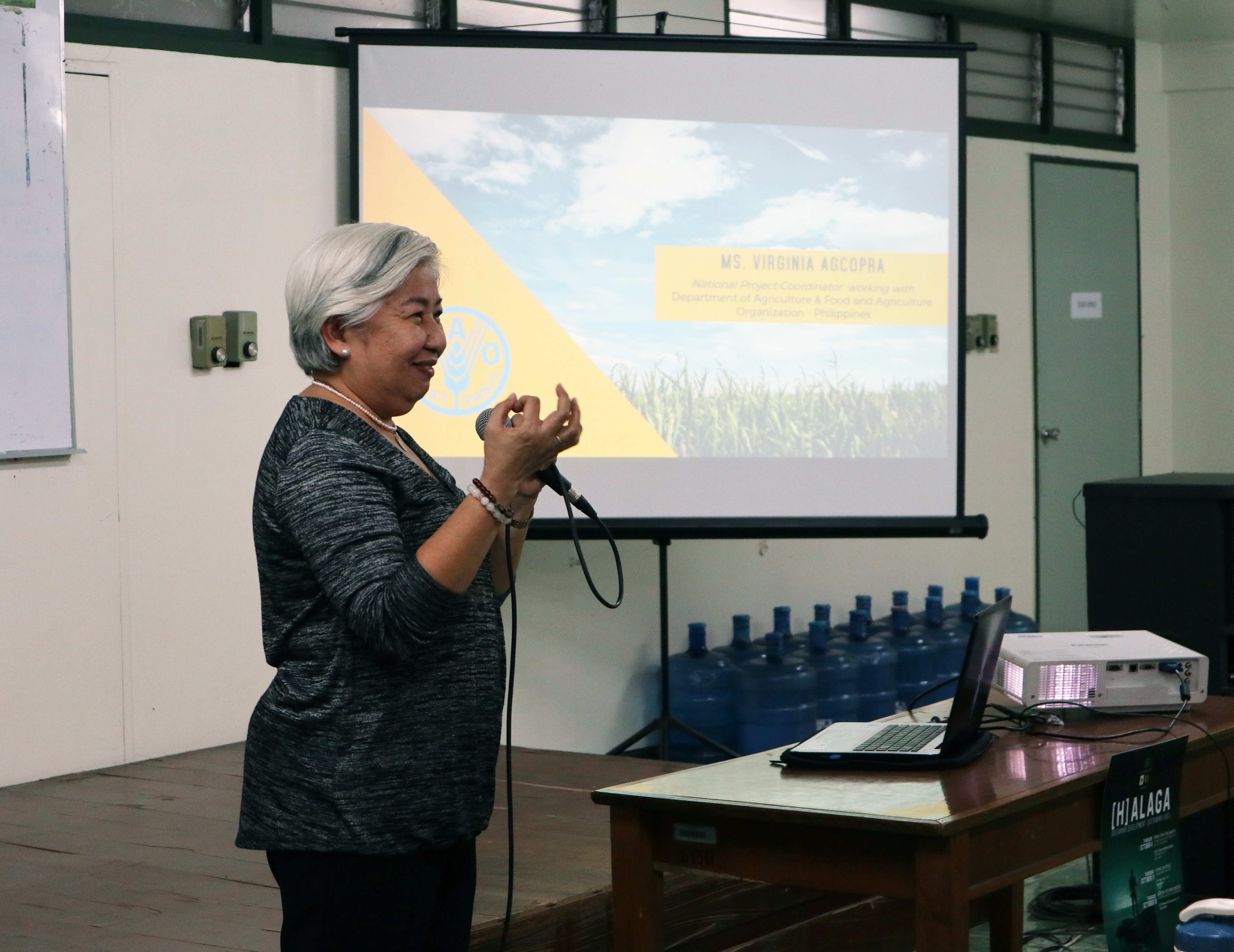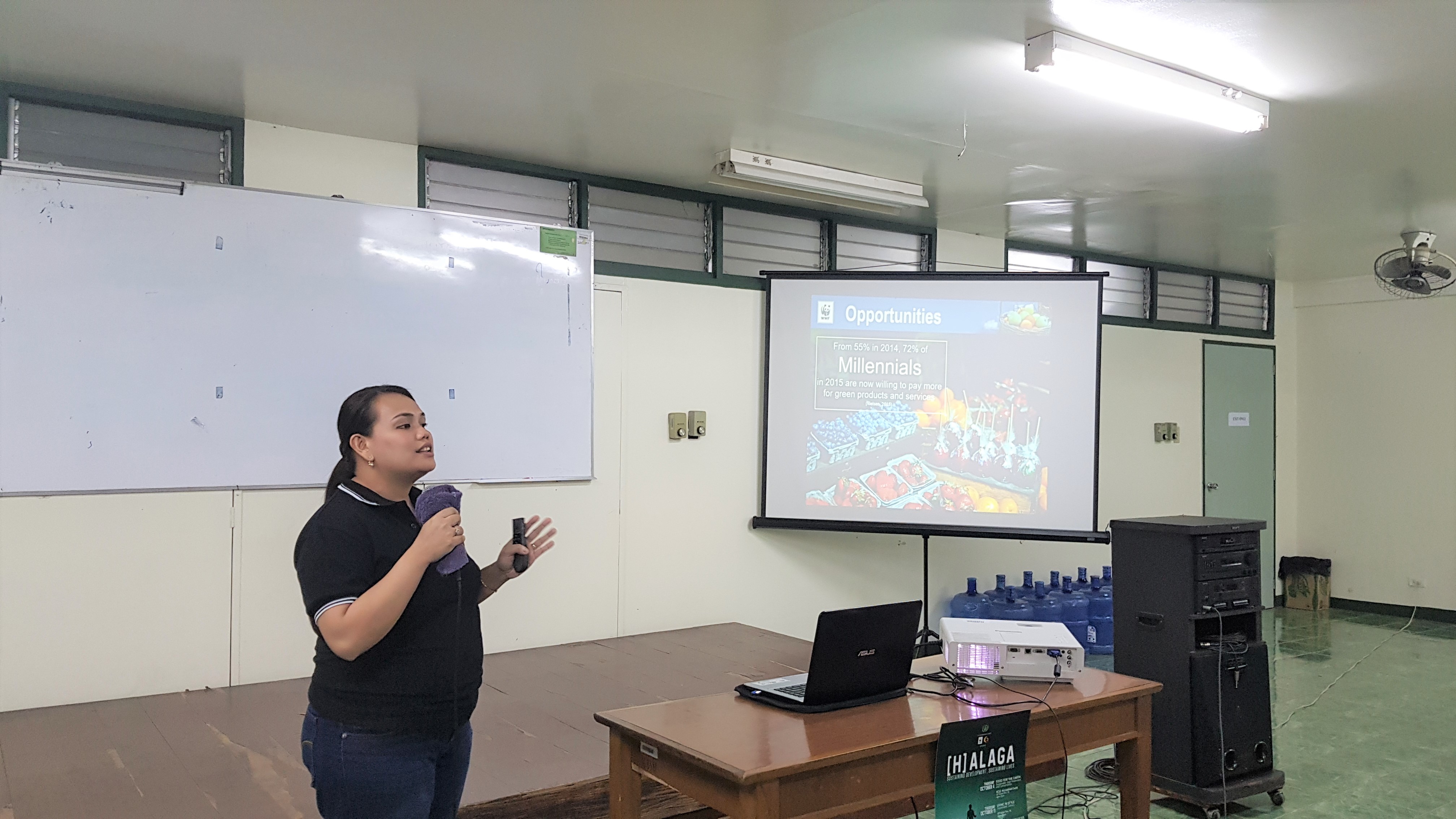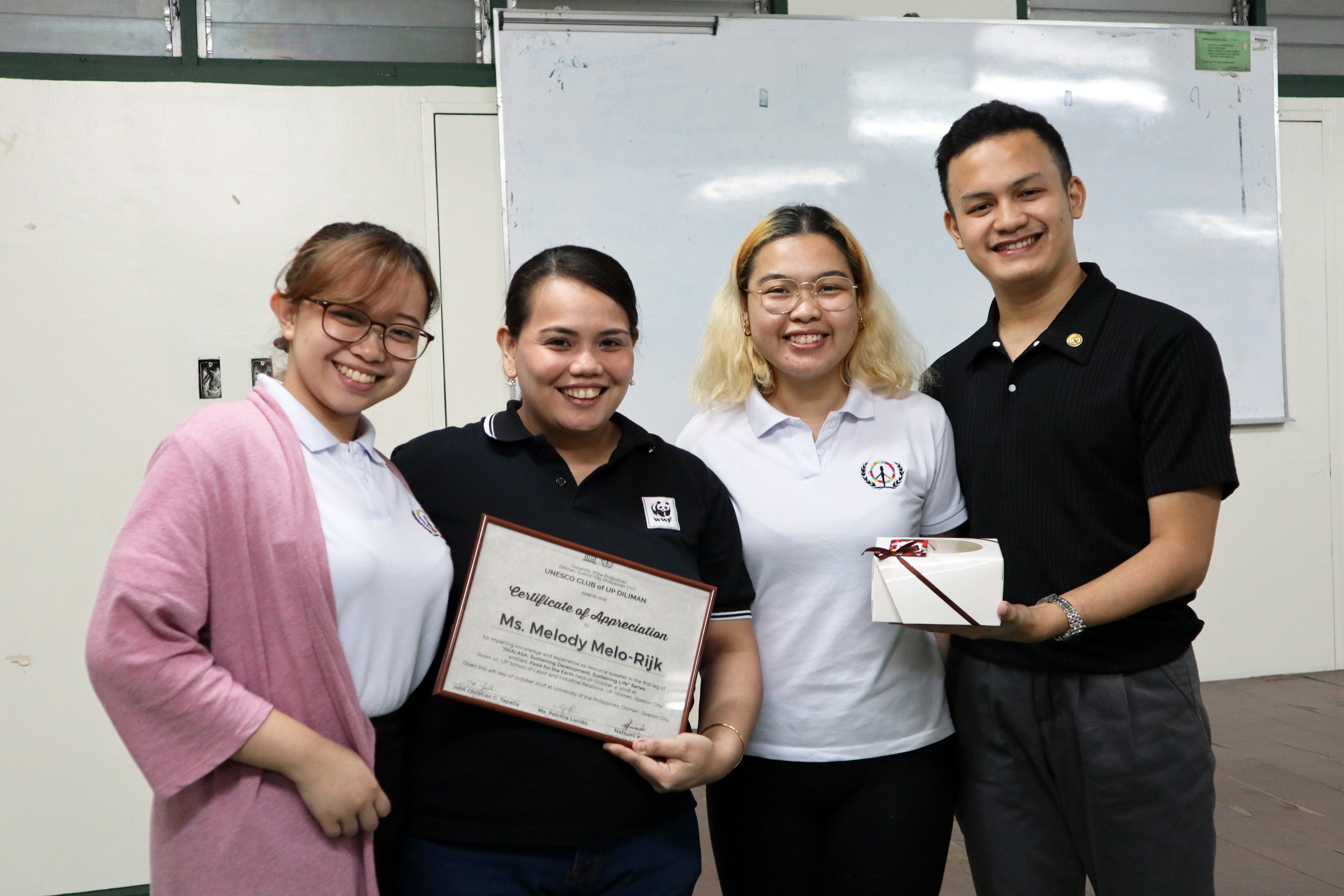The Sustainable Diner at the UNESCO Club of UP Diliman's HALAGA: Food for the Earth Talk
October 2018

The Sustainable Diner project team of WWF-Philippines together with students from the UNESCO Club of UP Diliman. Photo © Pamela Luber / WWF-Philippines
Last October 4, 2018, World Wide Fund for Nature (WWF) Philippines’ The Sustainable Diner: A Key Ingredient for Sustainable Tourism project was invited to speak at Halaga: Food for the Earth at the University of the Philippines School of Labor and Industrial Relations. Said event, which focused on Sustainable Food Production and Consumption, was a part of the Halaga: Sustaining Development, Sustaining Lives - a series of talks on sustainability matters including sustainable fashion and technology for sustainability. The series was conceptualized by the UNESCO Club of UP Diliman, a cause-oriented university-wide organization that aims to embody and uplift the ideals and objectives of UNESCO, or the United Nations Educational, Scientific, and Cultural Organization. The UNESCO Club aims to be at the forefront of promoting peace and development within the community through education, science, and culture.

Victoria Agcopra of the Food and Agriculture Organization of the United Nations (UN FAO) talking about the importance of agrobiodiversity in ensuring sustainable food systems in the country. Photo © Gabriel Villalon / WWF-Philippines
Melody Melo-Rijk, WWF-Philippines’ Project Manager of Sustainable Consumption and Production in the Philippines, was invited as a resource speaker, along with Victoria Agcopra, National Project Coordinator for the Food and Agriculture Organization of the United Nations (UN FAO) - Philippines. Agcopra opened the session with a presentation on agrobiodiversity and its importance to creating sustainable food systems in the Philippines. “Current farming practices have contributed to deforestation, water scarcity, soil depletion, and high levels of greenhouse gas emissions. How do we then shift away from high-input and resource-intensive farming and food systems to environment-friendly farming and food systems?,” asks Agcopra. “In the Philippines, we have 5,500 traditional rice varieties, and our diverse agricultural species have historically formed the basis for the resilient agro-ecosystems that we do have, like the Banaue Rice Terraces. Conserving and sustainably using this agrobiodiversity then allows us to not only ensure resiliency in our local food systems but also help preserve our cultural heritage by way of food.”

Melody Melo-Rijk, Project Manager for Sustainable Consumption and Production in the Philippines, shows the millennials of UP Diliman how their actions can translate to opportunities for promoting sustainable dining in the country. Photo © Pamela Luber / WWF-Philippines
Melo-Rijk, for her part, delved more into the practical application of sustainable consumption and production in everyday life through sustainable dining. “For those who may not yet be familiar with it, sustainable dining or eco-friendly dining means eating local and healthy food, avoiding leftovers, minimizing the use of plastics, and conserving other resources such as electricity and water in the food service industry. Actually, a lot of people have started practicing sustainability in dining, except that they are not aware that these actions are considered sustainable. Our project recognizes that there is a great need to educate. Millennials, like you, are a big part of our young and growing population, and so we believe that you play a key role in helping us educate others about sustainable dining,” says Melo-Rijk. “It can be as simple as you yourselves practicing sustainable dining whenever you eat out with your friends. When they see you consistently doing these actions, they will be inspired to know the why and hopefully, to do the how.”

Melo-Rijk with the organizing and executive committee of UNESCO Club of UP Diliman’s Halaga: Food for the Earth. Photo © Gabriel Villalon / WWF-Philippines
The participation of The Sustainable Diner project in Halaga: Food for the Earth is a part of the project’s planned campus tours, slated to run until 2020. In order to promote and inculcate sustainable dining habits, it is important to start early with the Filipino youth and engage with them when coming up with campaigns and solutions. It is only with the support of the Filipino youth that eco-friendly campaigns like The Sustainable Diner can find ways to succeed in promoting sustainable consumption and production in the entire country.
The Sustainable Diner project, under WWF-Philippines’ Sustainable Consumption and Production, is part of the International Climate Initiative (IKI). The Federal Ministry for the Environment, Nature Conservation, and Nuclear Safety (BMU) supports this initiative on the basis of a decision adopted by the German Bundestag.
